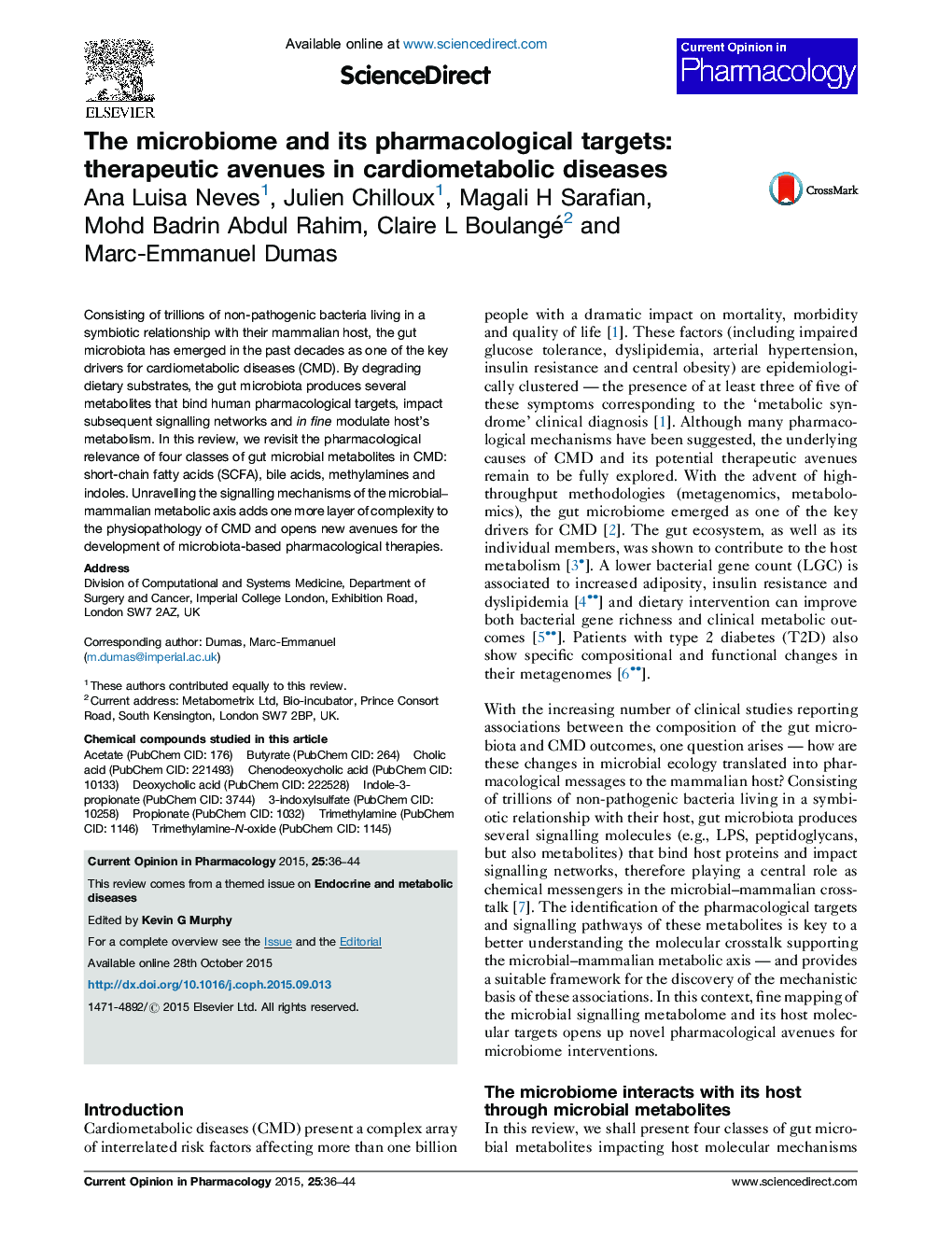| Article ID | Journal | Published Year | Pages | File Type |
|---|---|---|---|---|
| 2529749 | Current Opinion in Pharmacology | 2015 | 9 Pages |
•Gut microbiota communicates with its mammalian host via microbial signalling metabolites.•Disease phenotypes can be modulated by microbiome intervention.•Microbial signalling metabolites impact signalling networks involved in disease.•Designing microbiome-inspired drugs is a promising strategy.
Consisting of trillions of non-pathogenic bacteria living in a symbiotic relationship with their mammalian host, the gut microbiota has emerged in the past decades as one of the key drivers for cardiometabolic diseases (CMD). By degrading dietary substrates, the gut microbiota produces several metabolites that bind human pharmacological targets, impact subsequent signalling networks and in fine modulate host's metabolism. In this review, we revisit the pharmacological relevance of four classes of gut microbial metabolites in CMD: short-chain fatty acids (SCFA), bile acids, methylamines and indoles. Unravelling the signalling mechanisms of the microbial–mammalian metabolic axis adds one more layer of complexity to the physiopathology of CMD and opens new avenues for the development of microbiota-based pharmacological therapies.
Graphical abstractFigure optionsDownload full-size imageDownload high-quality image (184 K)Download as PowerPoint slide
